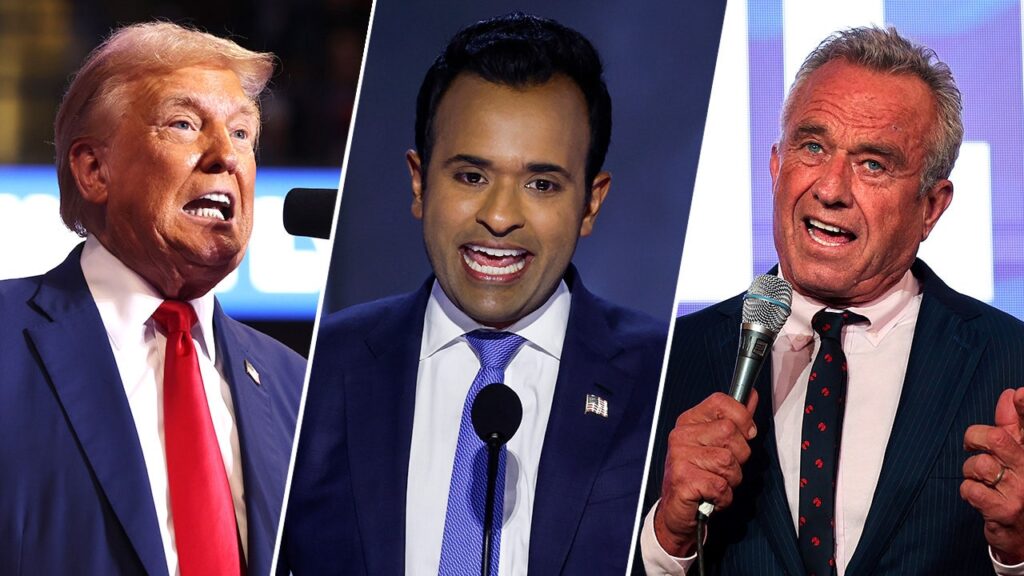More than a dozen states challenged President Donald Trump’s executive order seeking to end birthright citizenship Tuesday, asking a federal judge to block a campaign pledge of the incoming administration.
The order from Trump, one of dozens that Trump signed on his first day in office, argued a provision in the 14th Amendment that requires people to be “subject to the jurisdiction” of the United States allows him to define the children of undocumented immigrants as noncitizens.
Trump, who campaigned on ending birthright citizenship, ordered the government to deny citizenship to anyone born in the United States to undocumented or temporary resident parents as of Feb. 9.
The lawsuit from the state officials, filed in U.S. District Court for the District of Massachusetts, seeks an injunction to block the executive order. It argues that Trump overstepped his bounds by trying to overturn the 14th Amendment to the Constitution with only the stroke of a pen.
“The president has no authority to rewrite or nullify a constitutional amendment or duly enacted statute,” the lawsuit said.
The lawsuit comes from either states or officials from Massachusetts, California, Colorado, Connecticut, Delaware, Hawaii, Maine, Maryland, Michigan, Minnesota, Nevada, New Mexico, New York, North Carolina, Rhode Island, Vermont, Wisconsin, and the District of Columbia and San Francisco.
Immigrant advocacy organizations filed separate lawsuits Monday to challenge the order.
California Attorney General Rob Bonta, at a press conference announcing the suit, called Trump’s actions “un-American” and that it could impact more than 20,000 Californians born in the next year alone.
“The president chose to start his second term by knocking down one of our nation’s fundamental long-standing rights and foundational documents,” Bonta said.
Bonta said Trump’s executive order would hurt Californians’ ability to get Social Security cards, passports and other documents, as well as for the state’s own ability to access federal funds where the programs are based on the citizenship of the state’s residents, like children’s health insurance.
“The president has overstepped his authority by a mile, and we will hold him accountable,” Bonta said.
Republicans in Congress praised Trump’s first day immigration moves as well as his actions against birthright citizenship, even as they acknowledged that it would face an uphill battle in the courts.
Sen. Josh Hawley, R-Mo., told reporters Tuesday that he thinks the proper route to address birthright citizenship may be through legislation defining who is “subject to the jurisdiction” of the United States.
“I think this will be litigated, and I wouldn’t be surprised if part of the answer comes back as well. Congress may need to address that,” Hawley said.
Sen. Lindsey Graham, R-S.C., criticized birthright citizenship Tuesday, saying “It makes no sense” for the country to have that policy. Graham has previously introduced legislation to end birthright citizenship.
“We’re one of the handful of countries in the world that give your citizenship based on being born in the country, and it’s been abused,” Graham told reporters Tuesday. “Whether or not it holds up in court, we’ll see.”
Thomas Wolf, director of Democracy Initiatives at the Brennan Center for Justice, called the executive order “flagrantly unconstitutional” and said it goes against more than 100 years of Supreme Court precedent.
“Trump’s executive order is unconstitutional not just because it’s relying on interpretation of the substantive provision of the Constitution that flies in the face of the clear text of that provision and Supreme Court rulings on the issue, but it’s also assuming that a president can unilaterally change or suspend the Constitution, which you can’t do,” Wolf said.
Trump has relied on a provision of the 14th Amendment that says anyone born “subject to the jurisdiction” of the United States is a citizen. Wolf said that for more than 100 years the Supreme Court has held that phrase means anyone who isn’t the child of foreign diplomats, invaders or Native Americans on reservations – not open to congressional or presidential interpretation.
“There’s no legal argument that’s going to save this executive order,” Wolf said. “Just as a common sense matter, when we say subject to the jurisdiction of the United States government, all we mean is that the U.S. government can enforce its laws against you and put you in jail if you violate them.”
Wolf pointed out that the Supreme Court explicitly said in a 1982 case, known as Plyler v. Doe, the 14th Amendment’s birthright citizenship guarantee applied to the children of undocumented immigrants.
Muzaffar Chishti, senior fellow and director of the Migration Policy Institute office at the New York University School of Law, said in a conference call with reporters Tuesday the concept of birthright citizenship has long-established legal precedent.
Although Chishti said a ruling by the U.S. Supreme Court is uncertain, since the high court has “never directly ruled on kids born to unauthorized people,” he said “the predominant view is against holding that unauthorized people are not ‘subject to the jurisdiction’ of the United States.”


